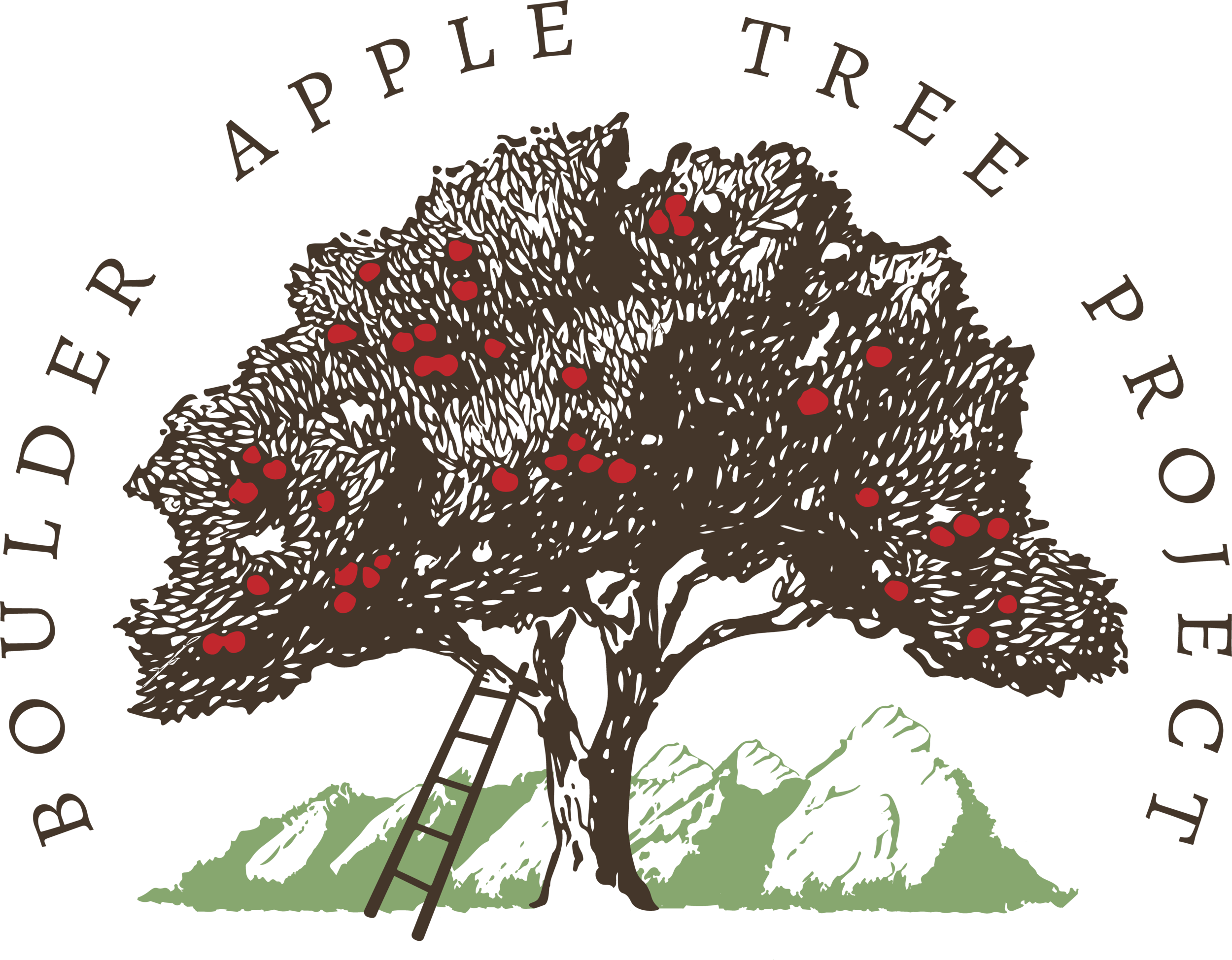Call for Community History Event Participants
Apple tree in North Pearl neighborhood.
How can BATP help neighbors share the history of their local apple trees and begin the work of preserving and celebrating the trees in their communities?
In October 2019, BATP held its first community history event. Residents of the neighborhoods in and around Newlands and North Boulder gathered for brief presentations on grafting and the apple history of their neighborhoods, but the highlight of the event was the group interview. With some guidance from me as a facilitator, the attendants gathered in a circle to discuss their memories and experiences with the trees on their properties and share what they knew of the trees’ histories. They also discussed the challenges facing the trees in their neighborhoods and why protecting the trees was important to their community.
"A 100-year-old tree has a lot to say."
"You're living in your own orchard."
“[These trees] can foster other ways of thinking about sustainability."
As a historian, I am particularly excited about these events because they offer me the opportunity to study the human relationships that develop around elements of a shared environment, like apple trees, while also inviting a conversation with community members about why that history matters.
The inspiration for these events came during our 2018 Apple Blitz, where we conducted dozens of interviews in a day. When I visited people’s homes, they would say, ‘Oh, you’ve got to talk to so-and-so down the street, he’ll know who lived here before us’ or ‘My daughter used to play with the other kids on the block, many of them still live in the neighborhood.’ My list of people to interview would grow until it covered almost all the surrounding blocks, and I wondered if there were a more efficient way to gather this information.
"The neighborhood—we used to get together. Everybody would bring apples. You didn’t get the cider from your own apples. You brought two bushels, you got about two bushels worth of juice. Everybody brought them down to this place that had a press.”
- Ann Tolbert, in the oral history for Dr. Bert Tolbert
About a month later, we held an event at the Agricultural Heritage Center in Longmont, with an audience of apple growers and enthusiasts from the Hygiene community. Their shared sense of place and what seemed almost like a communal network of care for the apple trees sparked an idea to research how apple trees have created and defined human communities in Boulder County. It seemed I could accomplish two things at once – more efficient interviewing and the exploration of my hunch about apple communities – if I could get neighbors together in a room to start talking about their trees.
A summary of the Newlands event will appear in an agricultural context for the City of Boulder Open Space and Mountain Parks. For future events, recordings of the conversation will be made available to attendees, and we hope these events will be the spark of neighborhood-level engagement and decision-making around protecting apple trees where they grow.
If you would like to learn more about our community history events or help organize one in your area, please fill out this survey. We are hoping to hold 4 events in 2020.
Ideally, these events will include at least some of the following:
Neighbors from a defined area, whether it’s a few blocks or an area of town. Not everyone needs to know each other, but the more they consider themselves geographic neighbors, the better.
Photographs, documents, and other treasures to share with the group regarding apple trees, or the area’s agricultural history more broadly.
A leader or host from the neighborhood who can help rally and organize potential attendees.
A location in or near the community to gather. (BATP can also coordinate another location, if necessary.)
The group interviews are recorded for research and summarizing purposes, with the consent of attendees.
Amelia Brackett Hogstad

